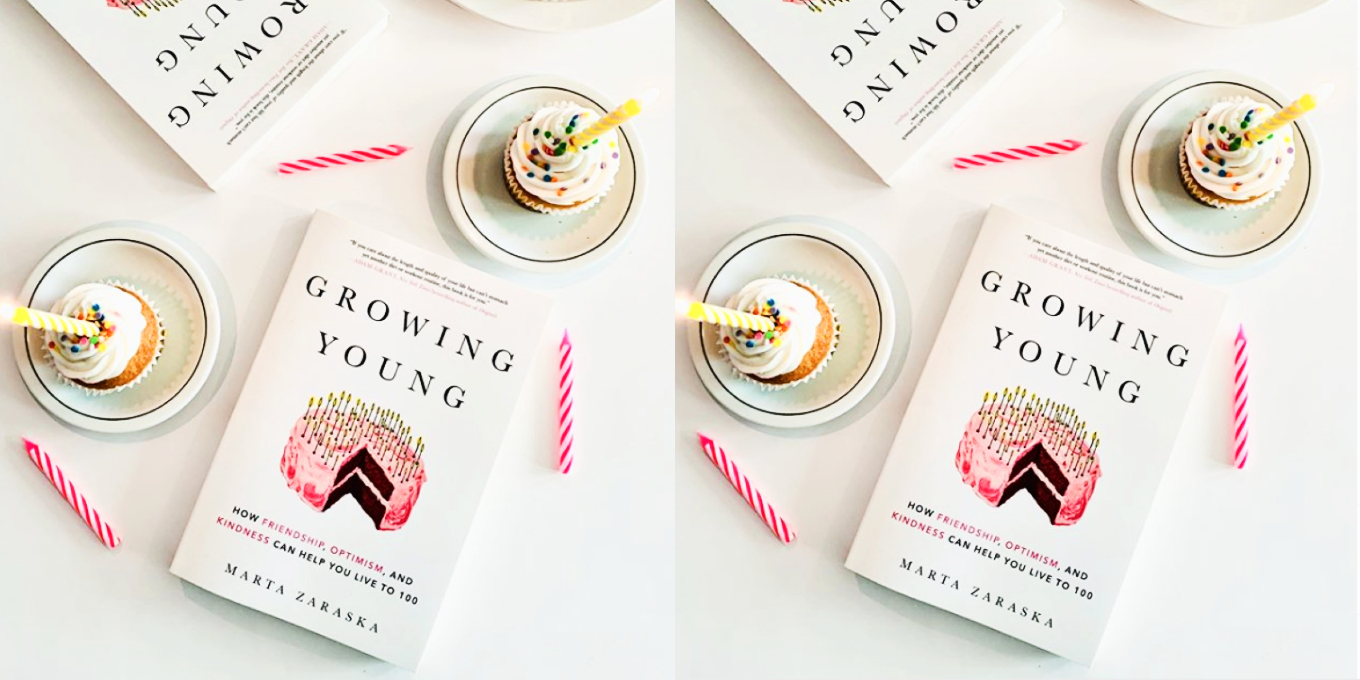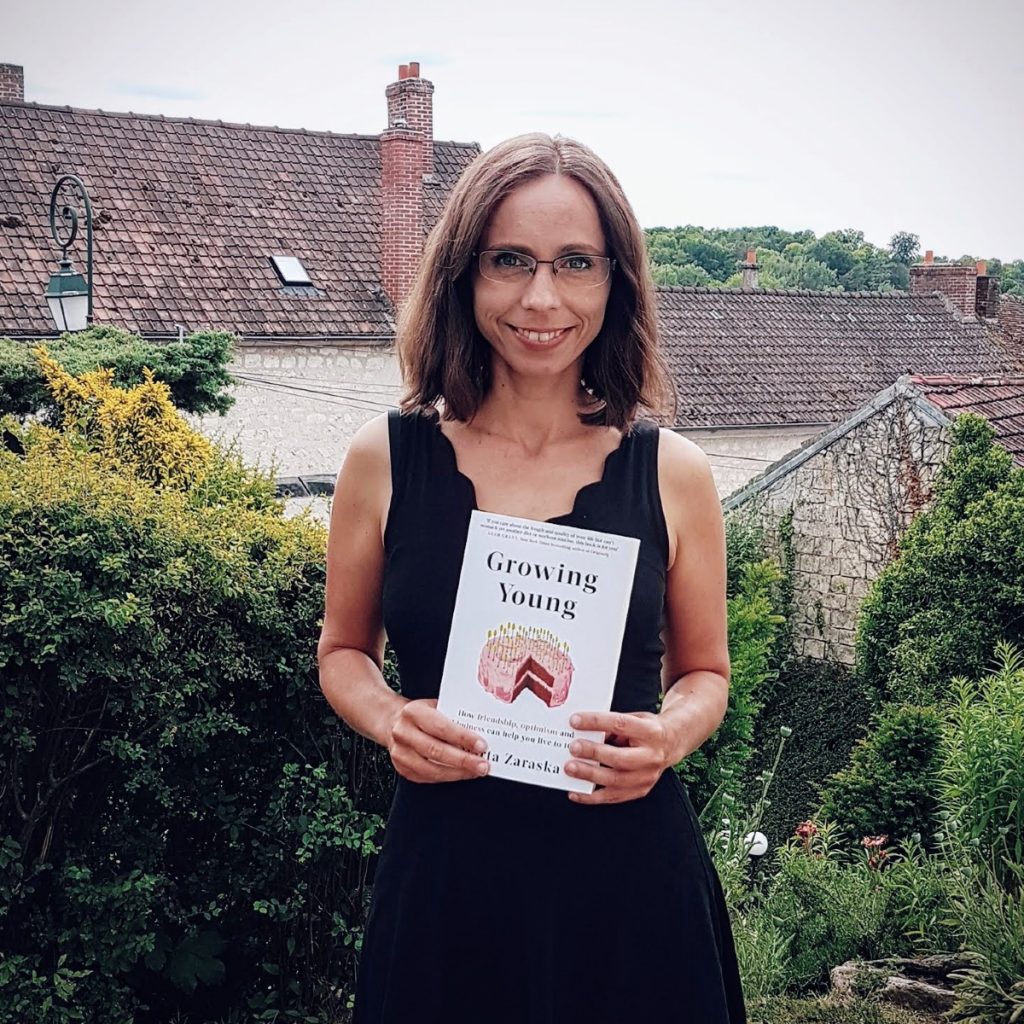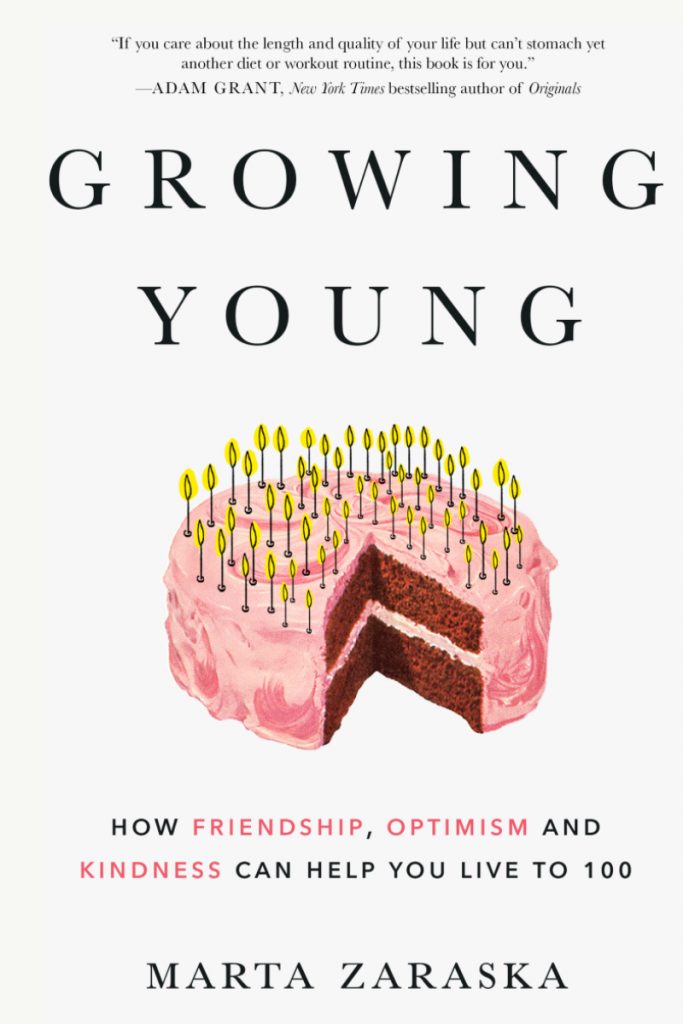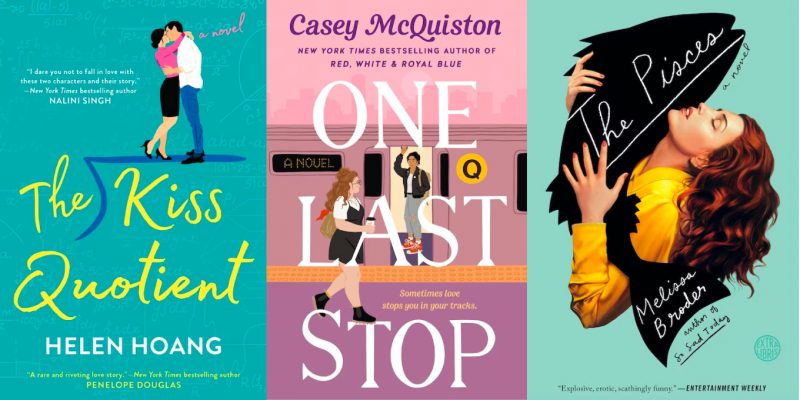Culture
Growing Young: An Interview With Author Marta Zaraska
How deepening friendships, practising empathy and contemplating your purpose in life can help you live longer.
by : Joanna Fox- Feb 22nd, 2021

Marta Zaraska
When author Marta Zaraska first set out to write Growing Young: How Friendship, Optimism and Kindness Can Help You Live to 100, she thought it was going to be a parenting book. “It all started with me realizing that if I only had one wish ever, it would be that my daughter lives a long and healthy life,” says Zaraska. “Which got me thinking: how do I help set her on such a path?”
 Marta Zaraska
Marta ZaraskaStarting with diet, Zaraska became obsessed with feeding her daughter all the best foods, including organic heritage vegetable purees, chia seeds and turmeric. Yet, when she started researching the topic of longevity, she discovered science that was pointing in a very different direction than she ever expected.
“Yes, diet and exercise are important, but not in the obsessive style I was following. Turmeric, I soon learned, is a ‘cheater’ well-known to scientists—it really does nothing to boost longevity” says Zaraska. “What I discovered, however, was this whole other world of things I was completely missing in my search of a healthy and long life for my daughter (and let’s admit it, for myself, too!). The studies I read showed that so-called soft drivers of health—kindness, friendship, optimism, conscientiousness, and so on—are often more powerful than diet and exercise.”
In her research, Zaraska found some surprising numbers: Building a strong support network of family and friends lowers mortality risk by about 45 percent. Exercise, on the other hand, can lower that risk by 23 to 33 percent. Eating six servings of fruit and vegetables per day can cut the danger of dying early by 26 percent, while following the Mediterranean diet by 21 percent. For volunteering, it’s 22 to 44 percent.
“That was big,” exclaims Zaraska. “It was bigger than just a parenting book—this was a message that was important for parents and non-parents alike. So I started digging more. I ended up reading over 600 research papers, talking to dozens of scientists and travelling from Japan to Portugal and the UK, and even doing experiments on myself, and from all of this Growing Young emerged.”
 Marta Zaraska
Marta ZaraskaA national bestseller, it feels like Growing Young is more relevant now than ever, making a strong case for why optimism, kindness, and strong social networks will help us live longer, more fulfilling lives. We spoke with Zaraska about our current food culture, her eye-opening discoveries and how we can navigate this brave new world with a positive—and beneficial—outlook.
We are a food, diet and image obsessed culture. How do you think that came to be and is so intensely prominent right now?
Totally obsessed. And I was there, too. I used to pop vitamins, try all the miracle foods du jour, count my daily steps. About a half of Americans and Canadians take at least one dietary supplement. There are now over 55,000 such products on the U.S. market alone, from moringa leaves to ashwagandha powder. We love the reductionist approach: pop this pill, eat this micronutrient, and all will be perfect. We love measuring everything. One reason for this, I believe, is that we are simply being sold all this stuff. Think about it: the vitamins, the supplements, the goji berries and other miracle foods, the exercise gadgets you just “must have” — there are companies out there making money on us being obsessed with these things. There is marketing, and ads, and PR. Influencers pushing this stuff to us on social media, making neat profits. On the other hand, friendship, kindness, finding meaning in life—these things are free. And if no one is making money, you won’t hear a lot about it in the media.
So, basically, we have it all wrong?
Not all wrong. Diet and exercise are very important for health. But eating healthy is not all that complicated. I like the quote from Michael Pollan: “Eat food, not too much, mostly plants. That’s it.” No miracle berries or manuka honey required. Carrots and apples are perfectly fine. On the other hand, while we spend so much time obsessing about our diets and exercise regimes, we often completely overlook the soft drivers of health. I know many people who stop seeing their friends because they are preparing for a marathon or an Ironman competition, and they no longer have time. That’s not good for health. You’d be better off going hiking with your friends, or kicking a ball around with your kids.
Now, more than ever, we could all benefit from friendship, empathy and kindness. How can we practice these things despite our current isolation and lack of contact?
You are absolutely right! These things are even important for our immune systems and vaccine response. In one experiment conducted in California, for instance, people who were randomized to perform acts of kindness had different gene expression in their leukocytes, more attuned to fighting viruses. On the other hand, people who have strong social connections have been shown to produce more antibodies to the flu vaccine. And yes, isolation and lockdowns are tough. We are social apes, so this is very unnatural for us—necessary however, in pandemic times. The good news is that you can still connect even in a lockdown. You can video call, you can write letters. You can do kind acts for others, like drop home baked cookies at a neighbour’s doorstep. You can look for meaning in life and practice optimism.
You speak to different countries and time periods where the populations were happier. Where do you think we’re going to land as this pandemic comes to an end, or at least becomes manageable?
I’m an optimist, so I do hope that if we now rediscover empathy, community and kindness, it can help us live healthier and longer in the future. Once we survive all this, we may emerge with stronger immune systems, stronger arteries, less diabetes. In fact, surveys show that many people in pandemic times are more likely to search for purpose in life, for instance, which from longevity and health perspective, is great news. Tough times force us to look deeper into ourselves, reconsider how we live our lives.
What are the keys to living a long, happy life?
Number one: having a happy romantic relationship—this can have more impact on your health than the best of diets. Number two: friendship and community. And number three: finding meaning in life. Followed by all the other soft drivers of health, which are as important as diet and exercise: kindness, volunteering, optimism, conscientiousness, emotional stability, mindfulness, even donating money and, if you have a dog, looking deeply into his eyes (it gives both of you an oxytocin boost).
What are a few little things we can start doing right away to improve our wellbeing?
To become more conscientious (which is a big health predictor) you have to start with small conscientious behaviours: maybe tidy your desk one day. Or pay one bill right away when it arrives (and yes, it really does matter for your health). Find time to do small acts of kindness—and you really don’t need a lot of time for this. It’s as simple as letting others ahead of you in traffic or paying for a coffee for someone standing in the line behind you. I have plenty of practical tips in the book, including why roller coasters are good for a happy marriage—although that’s probably for after pandemic.”
Growing Young: How Friendship, Optimism and Kindness Can Help You Live to 100, by Marta Zaraska, Penguin Random House Canada Growingyoungthebook.com
Read more:
Indigo Becomes First Canadian Retailer to Take the 15 Percent Pledge
The Books We Read Speak Volumes About Who We Are
Writer Kelsey Darragh Wants You to Take a Minute to Check in on Yourself
Newsletter
Join our mailing list for the latest and biggest in fashion trends, beauty, culture and celebrity.
Read Next

Beauty
The Best Met Gala Beauty Looks Of All Time
From Taylor Swift's 'Bleachella' era to Rihanna's iconic 2011 braids, meet the best beauty moments in Met Gala history.
by : Katie Withington- Apr 26th, 2024

Culture
Benny Blanco Says He Fell in Love With Selena Gomez Without ‘Even Noticing’ It
Allow Benny Blanco to tell the straight-from-a-rom-com story of how he realized his feelings for his girlfriend and longtime friend.
by : Alyssa Bailey- Apr 26th, 2024

Beauty
Summer Prep: How to Feel Confident in Your Swimsuit
New Size-Inclusive Swimwear: Gillette Venus partners with The Saltwater Collective to Launch a Collection for Any Body
by : ELLE Canada- Apr 24th, 2024




